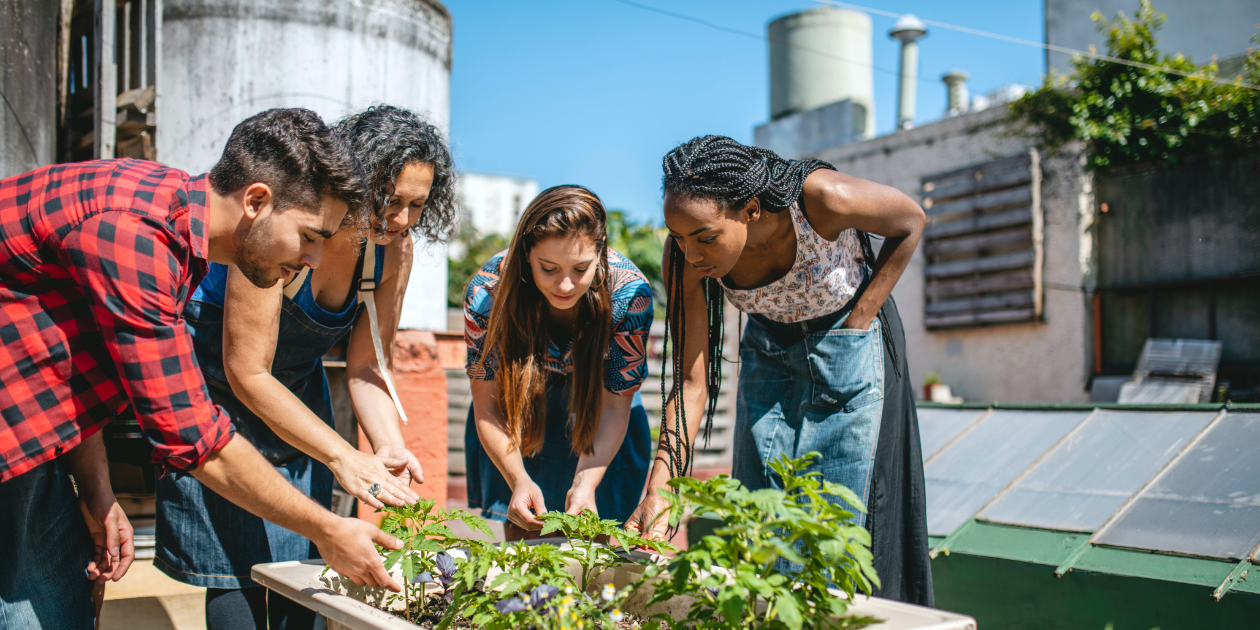Community Gardening Involves People
Community gardening involves people coming together to cultivate and maintain a shared garden. It's a collaborative effort among neighbors or members of a community to grow flowers, vegetables, and plants. This provides the community with an opportunity to have fresh produce and a space to enjoy the outdoors while promoting unity, environmental responsibility, and a sense of accomplishment.
Engaging in community gardening enhances individuals' sense of connection and fosters stronger social bonds. Gardening allows people to share their knowledge, connect socially, and build relationships based on their shared love for cultivating plants. Working collectively to maintain a garden improves the visual attractiveness of the community, encourages cooperation and interaction among people with diverse backgrounds, and leads to a heightened sense of belonging to the community.
Community gardening offers more benefits than simply growing plants. People involved in community gardening initiatives often report positive enhancements to their mental and physical well-being as a result of engaging in physical activities outdoors. Gardening has been shown to lower blood pressure, reduce stress, and increase feelings of overall well-being. Community gardens also serve as valuable educational resources, promoting awareness of biodiversity, sustainable gardening methods, and the production of organic food.
Community gardens frequently function as meeting spots for residents to come together for various events, workshops, and celebrations, fostering stronger bonds and cultivating a feeling of inclusiveness. These shared areas not only encourage collaboration and harmony but also facilitate intercultural dialogue and mutual comprehension.
Community gardens are vital in promoting the development of strong and sustainable communities while enhancing the well-being of individuals both physically and mentally. They promote a feeling of inclusion and togetherness, resulting in atmospheres that inspire teamwork and joint effort. They provide a forum for individuals from diverse backgrounds to interact and exchange information, removing barriers and preconceptions. By working together, people can gain a deeper understanding of the diverse cultures and customs that exist within their community.
Moreover, community gardens often organize educational sessions and gatherings to educate participants on eco-friendly methods of gardening, sustainable practices, and promoting healthy eating habits. These educational opportunities benefit not only those who use the community garden but also the wider community. By exchanging knowledge and experience about sustainable gardening methods, community gardens contribute to the overall well-being of the environment. People can use their understanding of organic methods for managing pests, composting, and conserving water in their personal residences and gardens and encourage others to do the same, reducing their environmental impact. Community gardens also prioritize the significance of sustaining a nutritious eating routine and provide opportunities to acquire locally sourced, recently harvested produce. This is especially important in some areas.
The Benefits Gardening With Kids
Gardening Ideas For Your Front Yard
Patio Gardening Ideas For You
Raised Bed Gardening Ideas That You Can Use
How To Use Sub-Irrigated Planters In The Garden
Links:

No comments:
Post a Comment